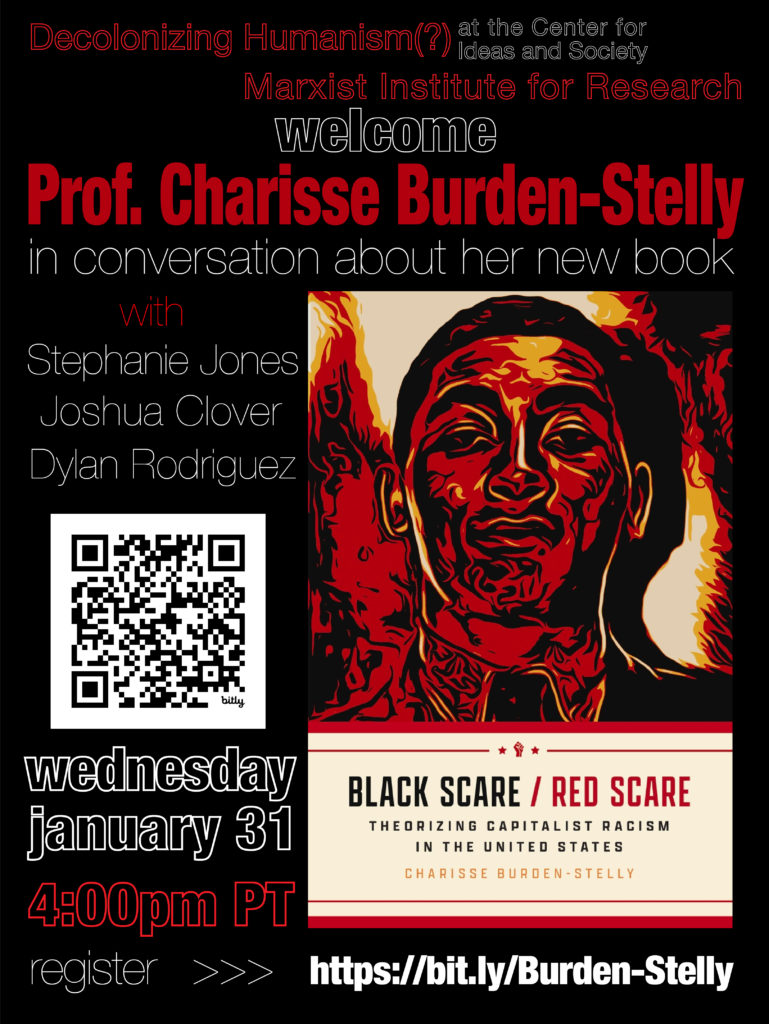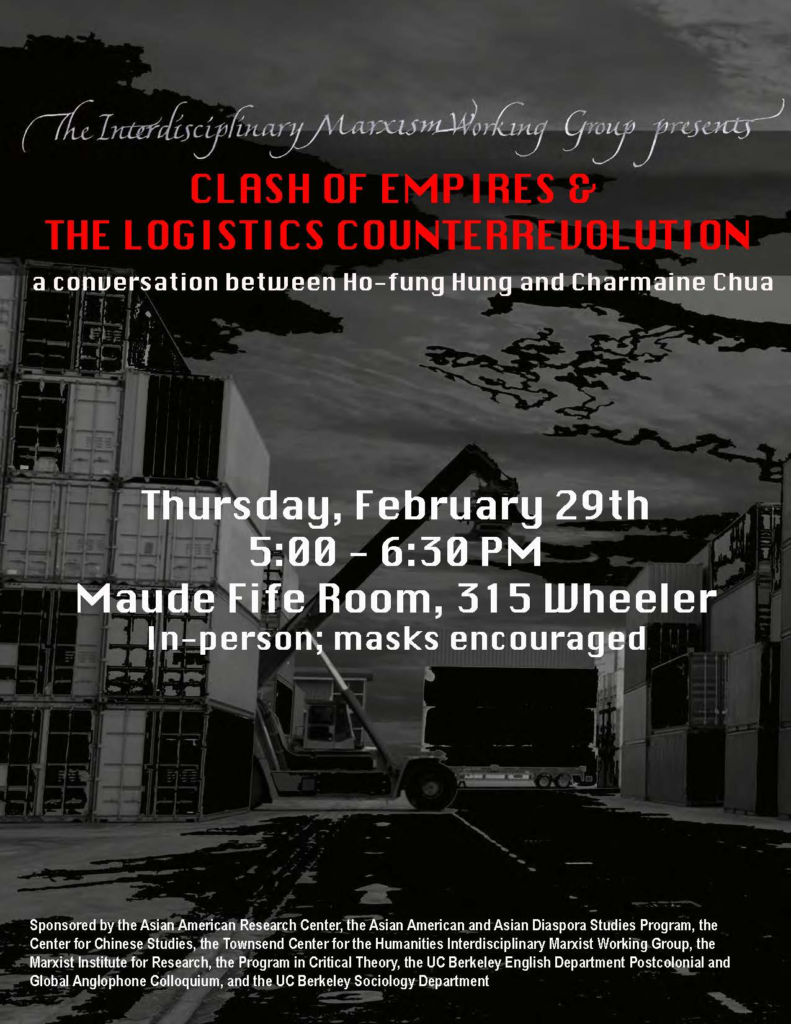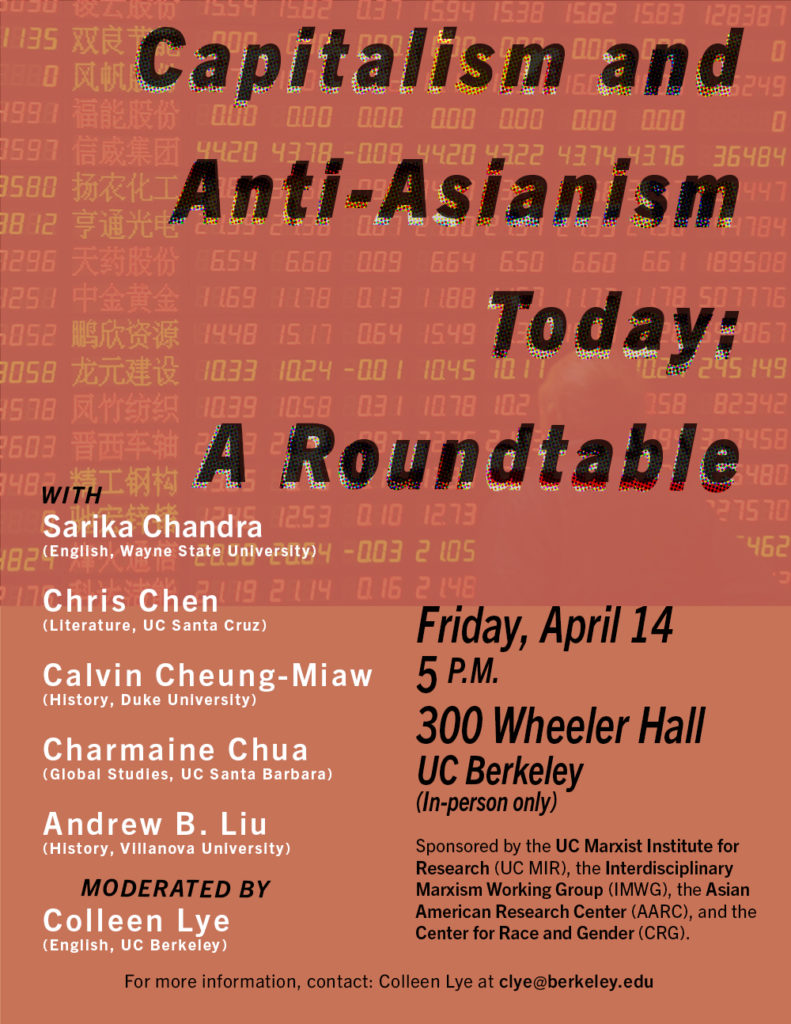In addition to programming events that it hosts, MIR sometimes co-sponsors talks, panels, and academic events on UC campuses and online. Most events are free and open to the public. Views expressed in sponsored and co-sponsored events do not necessarily reflect those of the Institute. MIR is dedicated to providing a harassment-free, inclusive, and accessible event experience for everyone regardless of gender identity and expression, sexual orientation, disabilities, neurodiversity, physical appearance, body size, ethnicity, nationality, race, age, and religion. We do not tolerate harassment of event participants in any form. MIR takes violations of this policy seriously and will respond appropriately. While we cannot take responsibility for all decisions by other event organizers, our own sponsorship decisions are guided by principles that include additional deliberation on any invitees or participants who may be involved in ongoing Title IX and/or formal/informal accountability processes.
Upcoming Events
In 2024-25, MIR will present a year-long event series oriented toward international studies and solidarities, under the heading of what is sometimes called “Third World Marxisms.” Stay tuned for details; starting October!
More Upcoming
In October of 2024-25, MIR will be hosting a book event for Wendy Matsumura’s Waiting for the Cool Moon: Anti-imperialist Struggles in the Heart of Japan’s Empire; Prof. Matsumura will be in conversation with Rebecca Karl and it will be amazing.

Past Events
May 23, 2024 04:00 PM PT
Modernism in the Peripheral Metropolis: Form, Crisis, and the City in Latin America
Tavid Mulder
MIR, in collaboration with the Latino and Latin American Studies Research Center at UCR, is excited to host this book event. Please join us in person or on Zoom: https://ucr.zoom.us/j/91675373511

January 31, 4:00 PT:
Charisse Burden-Stelly book event: Black Scare/Red Scare
This event, on the occasion of her vital and significant new book, is hosted in concert with Decolonizing Humanism(?) at the Center for Ideas and Society/UC Riverside, and will feature Prof. Burden-Stelly in conversation with Dylan Rodriguez, Stephanie Jones, and Joshua Clover. Pre-register here.

February 29, 5:00 PT, 315 Wheeler Hall, UCB:
Ho-fung Hung and Charmaine Chua, “Clash of Empires & the Logistics Counterrevolution”
In this conversation, Ho-fung Hung and Charmaine Chua elaborate the provocations posed by their work to the way in which Marxism and world systems theory have conceptualized the relationship between imperialism and capitalism, engaging the topic of what theoretical and political challenges they see arising from the economic interdependence between China and the US today in the context of capital overaccumulation since the 1970s. This event, co-sponsored with the Interdisciplinary Marxist Working Group at UC Berkeley along with other groups, is in person only. We will provide a transcript of the conversation here on this site.

Michael Hardt/Subversive Seventies
book event, Oct 31, 4:00 PT
Please join us to celebrate the release of Michael Hardt’s new book, The Subversive Seventies, in conversation with the author. The book offers a bravura reconstruction of revolutionary politics during a period of historical transformation, approached systematically within a global framework. We are delighted to share this occasion and work with the author. The event is virtual; we welcome you to join us here on Oct 31 at 4:00 Pacific Time. It’s Halloween! Spooky! Yet…subversive!

April 14, 2023:
Capitalism and Anti-Asianism Today: A Roundtable
Friday, 5pm-7pm at 300 Wheeler, UC Berkeley
With Andy Liu, Calvin Cheung-Miaw, Chris Chen, Charmaine Chua and Colleen Lye. Co-sponsored by the Berkeley Interdisciplinary Marxist Working Group (IMWG) and the MIR.

